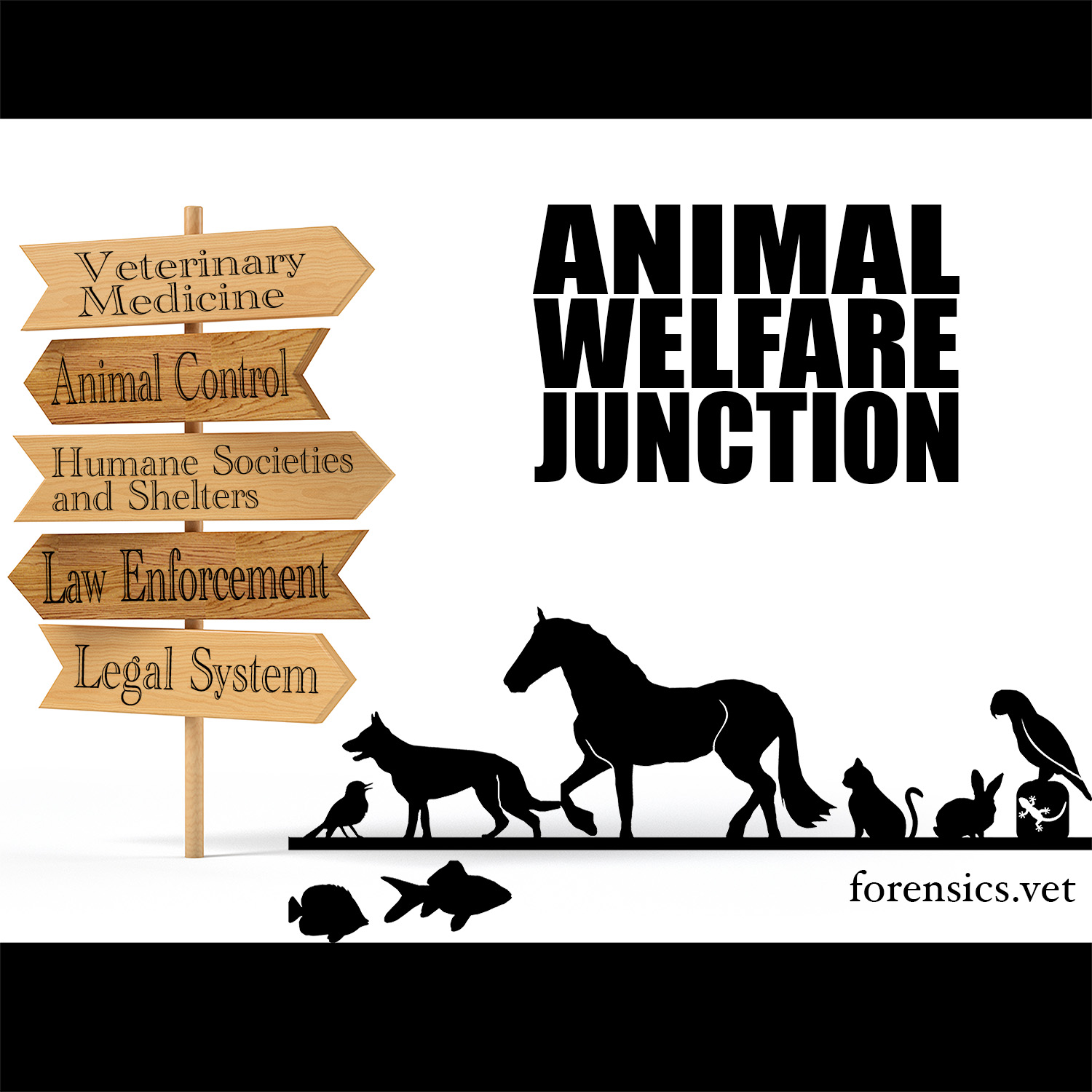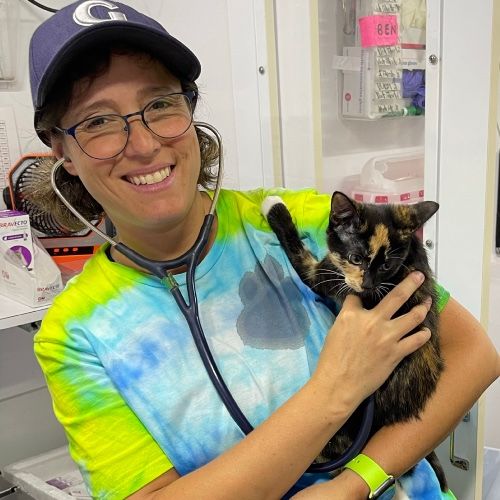UF Animal Forensic Conference 2024: Hunter Accidents with Ken Trusley
We are in person at the 2024 Animal Forensic Conference in Gainesville, Florida! Dr. G will be interviewing several of the speakers to give our audience a bit of the knowledge gained through the presentations. We will be releasing each interview individually to allow our listeners to find topics of interest.
Ken Trusley, from Florida Fish and Wildlife, discusses the types of hunting incidents seen in the field, from human causes to animal causes.
We would also like to invite our listeners involved in animal cruelty investigations to visit and join the International Society for Animal Forensic Sciences https://isafs.org/
Mentioned in this episode:
Keep it Humane Podcast Network
The Animal Welfare Junction is part of the Keep It Humane Podcast Network. Visit keepithumane.com/podcastnetwork to find us and our amazing animal welfare podcast partners.
Transcript
Our next guest is Ken Trusley from the Florida Fish and
2
:Wildlife Conservation Commission.
3
:Thank you for being here,
and welcome to The Junction.
4
:Ken Trusley: Yes ma'am, thank you.
5
:DrG: So can you start by letting
our listeners know about your
6
:background and what do you do?
7
:Ken Trusley: Uh, I am a lieutenant
with Florida Fish and Wildlife.
8
:I've been on for about 15 years.
9
:I was an officer for about five years.
10
:Then I was an investigator
for a little while and then
11
:promoted to lieutenant of patrol.
12
:And about two years ago I switched over
to lieutenant over our investigations
13
:unit, uh, the South investigations
unit of the Northeast region.
14
:So we cover about six counties.
15
:DrG: And your chat today,
your topic was about hunter.
16
:They said hunter accidents, but
you call them incidents, right?
17
:So what is a hunting incident?
18
:Ken Trusley: Uh, so hunting incident
is typically when, um, Somebody is
19
:legally or illegally hunting and
they Intentionally, unintentionally,
20
:or accidentally injure another
person, uh, typically with a firearm.
21
:DrG: So, I would think that accidental
and unintentionally would be kind of
22
:the same thing, but they're not, right?
23
:So, like, what's the difference?
24
:Ken Trusley: So, it's very similar,
but we kind of break it down.
25
:If it's Accidental, I chalk it up
as like an accidental discharge.
26
:They did not intentionally point the gun.
27
:They did not intentionally
squeeze the trigger.
28
:Versus an unintentional
incident is they purposely and
29
:intentionally shouldered the weapon.
30
:They purposely and intentionally squeezed
the trigger, discharging the firearm.
31
:It just struck an unintentional target.
32
:DrG: So kind of like a bad shot.
33
:Ken Trusley: Correct.
34
:DrG: So, do you see
incidents very frequently?
35
:Ken Trusley: Um, I would say in our area
we have probably two to three a year
36
:and throughout the state we probably
have between six and seven a year.
37
:DrG: And what's going to be the
most common type of incident
38
:that you see in the field?
39
:Ken Trusley: Typically for us, it
is legal hunters, um, that failed to
40
:identify the target or what's beyond it.
41
:We have deer hunters and Turkey hunters,
hog hunters that, um, accidentally shoot
42
:another hunter, whether it be someone
in their hunting party or someone that
43
:they did not know was there at all.
44
:DrG: A lot of like comedy or spoof
things that are showing hunters,
45
:they always show him with like a
beer can in their hand or whatever.
46
:So I imagine that there's going to
be different factors that increase
47
:the risk of these incidents.
48
:So what would be the things
that you see the most?
49
:Ken Trusley: Uh, there's always
a bunch of different factors.
50
:There have been times in the
past where there are intoxicants
51
:of some sort involved.
52
:The biggest factors that I see is a
failure to identify their target or what's
53
:beyond it and sometimes the victim is
not wearing an orange vest, but they're
54
:not required to or they're not wearing
an orange vest and they are required to.
55
:But a lot of times it's a just a
failure on the shooter's part to
56
:identify what's beyond the target.
57
:Sometimes they get amped up
their heart rates pumping.
58
:They see a big deer they've been hunting
all season and it happens to be running.
59
:They don't wait for it to stop and take a
good controlled shot or it runs in between
60
:them and their friend and they don't
realize the proximity of their friend.
61
:Or we've had some to where the
person takes a good controlled shot
62
:at what he feels is a safe target
but does not realize what's beyond
63
:it, and the projectiles continue on
behind it and and strike a victim.
64
:DrG: So when these incidents
happen, do they result in charges?
65
:Does it depend on the type of
incident and who prosecutes those?
66
:Ken Trusley: It's all very
dependent on the incident location
67
:and all the factors involved.
68
:Um, But what we do is we investigate
it to get all the possible findings
69
:that there are all evidence gathered
and we put it all together in a
70
:very thorough incident report.
71
:And then we go to the state attorney
and we presented the state attorney
72
:and say this is all the facts of the
case is all the evidence involved.
73
:Um, either you know, these are the
violations we've identified or or
74
:we can't identify any violations.
75
:But either way, we consult with the
state attorney and they'll either
76
:agree with us or disagree with us.
77
:Typically, they're pretty
much in line with us.
78
:Um, it's very hard to get a, um, if
it's, you know, truly unintentional
79
:or truly accidental, it's very hard
to get a culpable negligence kind
80
:of charge in the state of florida.
81
:But there's often different license
violations, game violations, um,
82
:different things like that that occur.
83
:DrG: So do you only investigate incidents
when it's like a person on person?
84
:Or do you also investigate incidents
that is an animal injuring a person?
85
:Ken Trusley: We do.
86
:We, we, we do both.
87
:Um, we, we call it the wildlife
human incident response is what
88
:we, when it's a kind of like a
hunting incident response, we have
89
:a wildlife human incident response.
90
:Um, and we have alligators
are probably the most common.
91
:the most common in my area, but we do have
some some bear versus human incidents too.
92
:And we investigate those as
well and try to find out what
93
:was the determining factor.
94
:What was the cause of it all?
95
:DrG: So these investigations ever end up
in identifying illegal hunting activities?
96
:Ken Trusley: It does.
97
:Several times in the past we've had
identified that it was either somebody
98
:trespassing illegally, somebody
that was hunting in a closed season.
99
:Um, somebody that even as simple
as just a unlicensed hunter that
100
:didn't have the proper licensing,
which is typically an infraction.
101
:It's not, it's not a criminal offense.
102
:Um, but I would say a large
portion of the, of the ones that
103
:I've responded to lately, they've
been legal to be where they're at
104
:legal season and legally licensed.
105
:They were just did not identify
their what's beyond their target.
106
:DrG: Excellent.
107
:Well, thank you so much for
sharing your knowledge and
108
:thank you for what you're doing.
109
:Ken Trusley: Yes, ma'am.
110
:Thanks for having me.

